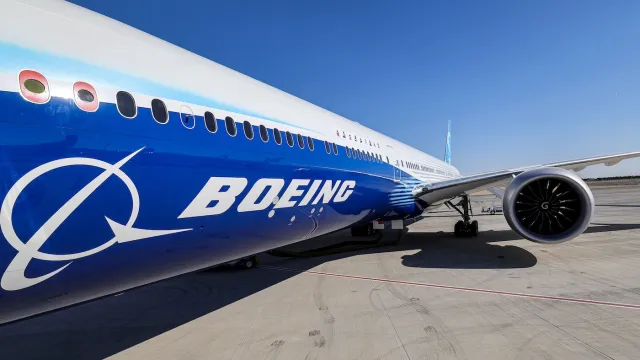FAA Imposes $3.1 Million Fine on Boeing
The Federal Aviation Administration (FAA) has proposed a $3.1 million fine against The Boeing Company for safety violations related to the 737 MAX 9 door plug incident with Alaska Airlines at Portland International Airport in January 2024. This penalty brings attention to systemic quality control failures that occurred between late 2023 and early 2024, highlighting past issues rather than current operations. The fine, announced on September 12, 2025, underscores Boeing’s eroded safety culture, citing numerous violations including interference with safety officials and the presentation of unairworthy aircraft.
Details of the FAA Findings
The proposed fine of $3,139,319 results from numerous safety breaches at Boeing’s 737 factory in Renton, Washington, and Spirit AeroSystem’s Wichita, Kansas facility. The FAA identified hundreds of quality system violations, such as presenting unairworthy aircraft for certification and failing to adhere to internal quality protocols. A particularly concerning event was a non-ODA Boeing employee pressuring an ODA member to approve a non-compliant 737 MAX, prioritizing delivery schedules over safety standards.
The Alaska Airlines Flight 1282 incident on January 5, 2024, where a door plug failed mid-flight after takeoff from Portland, spotlighted these ongoing issues. The National Transportation Safety Board criticized missing bolts and insufficient training at Boeing, which led the FAA to ground the 737 MAX 9 temporarily and limit production, a measure still effective as of September 2025. Boeing has 30 days to respond to the FAA’s penalties, which represent the agency’s maximum statutory fines.
Boeing’s Safety Challenges
Boeing’s difficulties trace back to the 2018 and 2019 737 MAX crashes with Lion Air and Ethiopian Airlines, resulting in 346 fatalities and a 20-month grounding, followed by a deferred prosecution agreement with the Department of Justice. Following the 2024 Alaska Airlines incident, another DOJ investigation into potential violations emerged, leading the FAA to implement real-time inspections of each 737 MAX and 787 before delivery, reflecting diminished trust in Boeing’s self-certification processes.
While the $3.1 million fine is substantial for regulators, it is a minor financial hit for Boeing. The negative publicity is a more substantial threat, noting the company’s decline from a storied safety culture to prioritizing short-term profits over quality. The fine is rooted in issues from late 2023 and early 2024, yet underscores persistent systemic flaws as recent FAA audits revealed 97 instances of noncompliance.
Boeing’s Response and Future
Boeing has expressed regret for the January 2024 incident, outlining a new Safety & Quality Plan under FAA supervision focusing on training, compliance, and fostering a safety reporting culture. The company highlights improvements in performance indicators, striving to regain regulator and public trust.
Stricter FAA enforcement measures may lead to production delays affecting airlines like United Airlines and Southwest Airlines, potentially resulting in passenger impacts at major hubs such as Seattle and Los Angeles. The fine underscores the necessity of rigorous safety standards in the aviation industry.
Path Forward
Boeing’s newfound focus on quality is not due to genuine concern but a response to investor demands for compliance to avoid further regulatory issues. Such focus can enable increased production and certifications for models like the 777X and MAX 10. Despite the seemingly small financial impact of the fine, it reflects warranted consequences for safety breaches. Optimistically, Boeing’s trajectory appears positive, yet DOJ scrutiny and public skepticism remain challenges. Persistent FAA inspections are expected to ensure ongoing airworthiness until demonstrated consistency in improvements.

